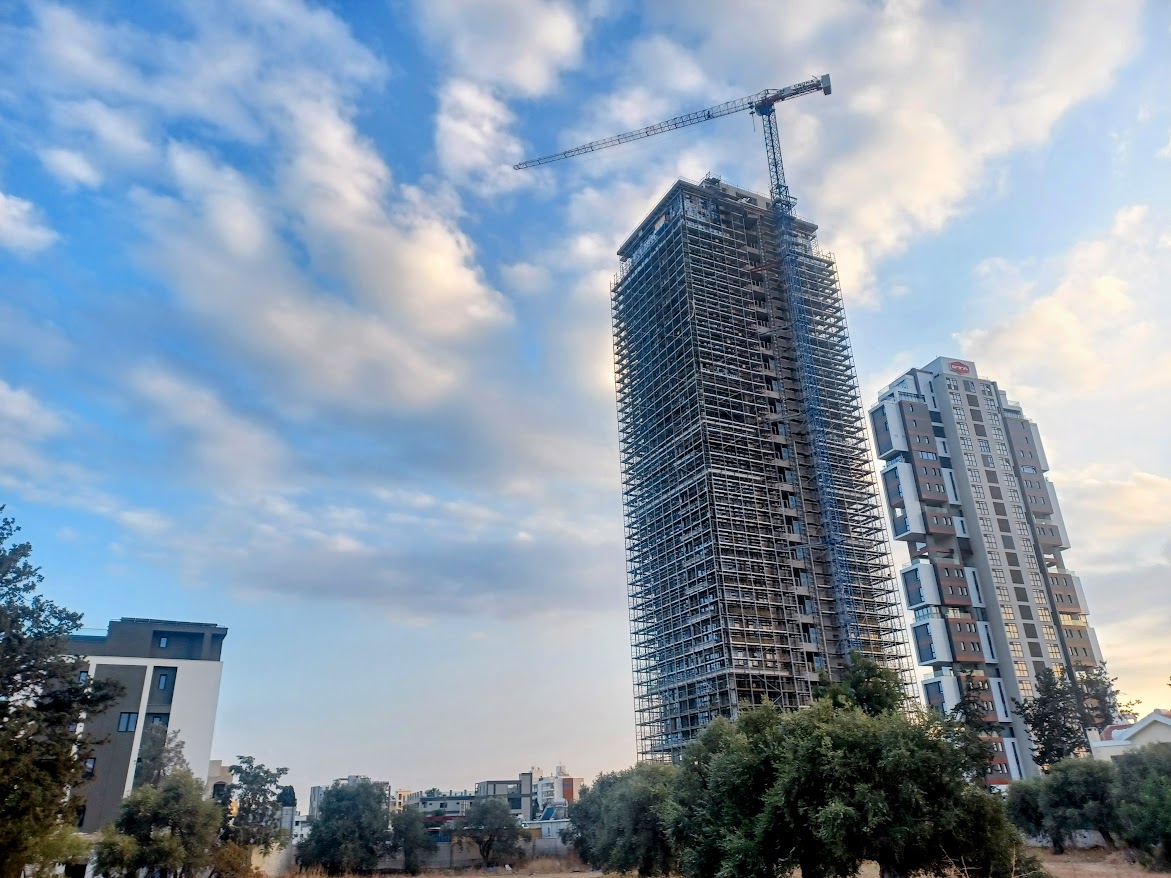The association of large investment projects renewed its call this week for a new deputy ministry focused on development and competitiveness.
Addressing president Nikos Christodoulides, association president Andreas Demetriades said that Cyprus needs a coherent national strategy built around “healthy and sustainable development” and clear incentives.
Speaking at the association’s general assembly, he noted that large projects “create jobs, strengthen the social fabric and safeguard the future prospects of Cyprus”.
He added that this underpinned the push for a Deputy Ministry able to drive competitiveness, attract high-quality investment and coordinate long-needed reforms, from simplification and digital services to “the operation of a real one-stop shops for investors”.
Such a body, he said, should also oversee targeted licensing for strategic projects to “measurably accelerate the development process”.
He linked this to the association’s broader vision of positioning Cyprus as a regional business centre and leading destination for large-scale investment, pointing to potential in high-end healthcare, higher education, technology, IT, tourism, shipping, green energy and infrastructure.
According to Demetriades, the association’s 16 members manage the island’s largest developments, consistently attracting solid foreign interest.
Their €8 billion portfolio, covering marinas, casinos, golf courses, universities, medical centres, research parks and major tourist projects, upgrades the country’s investment and tourism offering, he said, while supporting thousands of jobs and raising living standards.
Turning to long-term priorities, he said the business environment must continue to improve. The recent cost of living allowance (CoLA) agreement, he noted, showed “a high sense of responsibility and institutional maturity” among the state, employer groups and unions, calling it “a success for everyone” that reinforces stability and predictability.
With Cyprus preparing for its EU Council Presidency, he said the role would come with weighty European files, the multiannual financial framework, competitiveness, defence and security, but would also be used to strengthen EU strategic autonomy and deepen ties with the Middle East and Mediterranean.
The Presidency, he added, is “a unique opportunity to promote our country as a pillar of stability, development and modern governance”.
He also welcomed Parliament’s approval of the bill establishing a national mechanism for screening foreign direct investments (FDI), describing it as an important step that aligns Cyprus with European norms, improves transparency and strengthens the country’s credibility as a stable, predictable investment destination.
However, he stressed that housing remains a pressing issue. Cyprus, he said, has become a strong headquartering base, yet workers and families need adequate housing and more educational infrastructure.
He called for targeted incentives to expand housing stock, potentially by increasing the building coefficient in selected areas, and VAT tools that allow investments in rental properties under the “option to tax” framework.
Affordable housing, he said, must be tackled without delay.
He therefore asked the President for further incentives to support new buildings and private-sector projects such as foreign-language schools and universities.
Demetriades also urged the institutionalisation of the “integrated tourism project” category as a strategic use designation, enabling modern mixed-use and tourism developments and clearing long-standing obstacles affecting golf projects, ventures that, he said, boost public revenue and help extend the tourist season.
On energy, he said high costs require a proper long-term national strategy, noting the need for natural gas, faster deployment of storage systems and major infrastructure to reinforce security and sufficiency.
And on the question of Schengen, he said accession would improve Cyprus’ economic reach while strengthening its institutional credibility.
Representing the Keve, Andreas Tsouloftas, delivered a message from president Stavros Stavrou, who described large developments as a lever for modernisation, job creation and competitiveness.
Despite global uncertainty, he said the Cypriot economy “continues to demonstrate resilience and adaptability”, with foreign-investor confidence showing that Cyprus remains a reliable destination for quality investment.
He added that the Chamber promotes Cyprus’ comparative advantages abroad and, through economic diplomacy, works with the state to attract new investment and improve the business environment.
At the same time, he said the chamber and the association are working to address long-standing hurdles such as bureaucracy, slow licensing and a shortage of specialised staff.
“It is our common goal to strengthen the large development sector,” he noted, giving it the tools needed to sustain its contribution to the economy and society.
From the Nicosia EOA, president Constantinos Yiorkadjis emphasised the role of local authorities in major projects, particularly in water supply and licensing.
He said 90 per cent of the Nicosia authority’s budget and 335 staff are dedicated to water and sewage, describing adequate supply as “extremely important and directly linked to the development of cities and communities”.
Without fixes in certain areas, development may have to pause, he warned.
On licensing, he said around 150 employees now handle applications, and that the authority issues roughly as many as it receives each month, meaning approvals could be delivered within a month once old backlogs are cleared.
Responding to citizen and investor concerns, the authority has created a dedicated development service office and is introducing a digital remote-service platform.
Yiorkadjis called for cooperation on the permit-digitisation project, the creation of a single authority for protected areas and greater transparency around the antiquities department’s decisions on large developments through measurable criteria and documented impact assessments.






Click here to change your cookie preferences